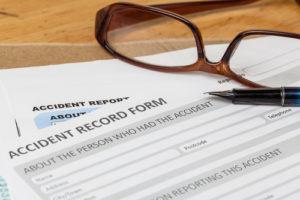

Since Ohio is an at-fault state, you may have concerns about how insurance adjusters determine fault if you were injured in a car accident. When establishing fault, insurers follow Ohio’s modified comparative fault rule, which is outlined under Ohio Revised Code (ORC) § 2315.33.
Based on this system, both parties may hold some percentage of responsibility for an accident. Even if an involved party suffered injuries, if they were more than 50% at fault for an accident, they would be unable to collect compensation for their damages.
In a similar vein, if you are less than 51% responsible for the accident, you would be able to recover the cost of your collision-related expenses. However, as you can imagine, many responsibilities go into building a personal injury case. For this reason, you may want to consider how an Ohio car accident lawyer can help you recover compensation.
How Negligence Is Determined in an Auto Collision
Every car accident is unique. The details of your accident may come with its own set of circumstances not present in a similar situation. When evaluating your claim, the insurance adjusters will consider the information from the police report, witness statements, and other pieces of evidence. They will use this information to determine fault.
At the same time, you must remember the insurance adjusters are seeking to protect their company’s interests. It can be beneficial to seek advice from a personal injury lawyer to protect yourself against any unfair insurance practices.
A lawyer can help you by:
- Investigating the cause of the accident
- Gathering evidence to support your claim
- Identifying all liable parties
- Consulting with medical professionals and accident reconstruction specialists regarding your situation
- Estimating the value of your claim while also taking into account any future expenses
- Reviewing and negotiating settlement offers
While most personal injury cases are resolved through the negotiations process, it may be necessary to bring your case to court. Many legal practices provide a free case evaluation to discuss claimants’ situations and options. You may benefit from such a service.
For a free legal consultation, call (614) 538-1116
How Insurance Adjusters Determine Fault
To determine who might be at fault for an accident, insurance adjusters will investigate the circumstances of the accident. They may gather evidence such as:
- Eyewitness statements
- Video from red-light cameras or surveillance cameras
- Photos
They might also have an expert reconstruct the accident to determine how it occurred. They will likely also ask you about the accident. Some of these questions might prompt you to make statements that could jeopardize your case. You may want to ask the insurance adjuster to speak to your lawyer instead.
You Could Still Claim Compensation Even if You Contributed to an Accident
Your compensatory losses will be split into two categories: economic and non-economic damages. Economic damages are financial expenses that can be proven with receipts or invoices, such as medical bills, lost wages, and property damage costs.
Noneconomic damages are more subjective and difficult to quantify since their costs cannot be proven with evidence. Examples of non-economic damages include pain and suffering, loss of enjoyment of life, and loss of consortium.
Things can move quickly following a car accident. The other party’s insurance company may argue that you caused the collision, even if you did not. For that reason, you should consider the value of teaming up with a car accident lawyer.
Click to contact our personal injury lawyers today
How To Protect Your Best Interests After a Car Accident
Following a car accident, your top priority should be your health. It is essential to seek medical attention, even if you feel unharmed. Be sure to continue with your medical care and follow your doctor’s orders. If you fail to keep up with your medical care, the insurance adjuster can claim that you are contributing to your injuries which can affect your compensation.
Complete a Free Case Evaluation form now
Be Mindful of Ohio’s Statute of Limitations
You should also be mindful of Ohio’s statute of limitations, which is outlined under ORC § 2305.10. Most claimants have a two-year period to recover compensation through a car accident lawsuit. If you fail to file your case within the state’s deadline, you could be barred from pursuing compensation for your losses.
Call for More Information About How Insurance Adjusters Determine Fault
If you would like to learn more about pursuing compensation or have any questions regarding the claims process, contact Bressman Law. We offer a free case review and represent claimants on a contingency-fee-basis. To get started, call us today at (614) 538-1116.
Call or text (614) 538-1116 or complete a Free Case Evaluation form









